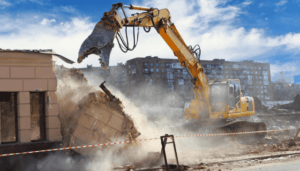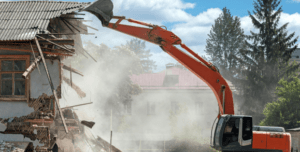Undertaking a demolition project in New York City is no simple task. The city has some of the strictest building and safety regulations in the country, with laws and permits designed to ensure public safety, environmental protection, and orderly construction practices. Whether you’re demolishing a small structure or an entire building, local demolition laws and permits can significantly influence the timeline, cost, and process of your project.
In this guide, we’ll explore how these regulations affect demolition work in NYC and how a professional demolition company in NYC can help you comply with the rules and avoid costly mistakes.
Permit Requirements
Obtaining demolition permits is a critical first step in any demolition project in NYC. These permits are required by the NYC Department of Buildings (DOB) to ensure all safety, environmental, and structural regulations are met before demolition begins.
The most common permits include the “Full Demolition Permit” for entire structures and the “Partial Demolition Permit” for partial demolitions. Both permits require detailed plans outlining the method of demolition and ensuring the safety of surrounding areas. Failure to secure the appropriate permits can lead to fines, work stoppages, and legal complications, making it crucial to work with a demolition company that knows the ins and outs of NYC’s permitting process.
Safety Regulations
Safety is a top priority in NYC demolition projects. Local laws require thorough inspections before demolition to ensure the structure is safe to dismantle and to prevent accidents. Safety measures are extensive, covering everything from worker training to the use of safety equipment.
For example, demolition contractors must use fall protection systems and the building must be checked for hazardous materials like asbestos or lead paint. If hazardous materials are found, they must be safely removed by licensed professionals before demolition begins. These safety regulations are in place to protect workers and the public, and any failure to adhere to these standards can result in penalties, delays, and even project shutdowns.
Environmental Considerations
Environmental regulations are another critical aspect of NYC demolition laws. Contractors must identify and safely dispose of hazardous materials such as asbestos and lead, ensuring that these materials do not harm the surrounding environment. In addition to hazardous materials, there are also requirements for recycling construction waste.
NYC mandates that contractors recycle materials like metal, concrete, and wood, contributing to the city’s sustainability goals. Failure to comply with these environmental regulations can result in significant fines and project delays, highlighting the importance of partnering with a demolition company familiar with local environmental rules and best practices.
Impact on Neighbors and Local Communities
Demolition projects in NYC must consider the impact on neighbors and the local community. New York City requires that residents and businesses adjacent to the demolition site be notified of the project’s start date and expected disruptions, such as noise, dust, and heavy equipment operation.
In addition to this notice, protective measures like scaffolding and sidewalk sheds must be installed to prevent debris from spilling into public spaces. Noise and dust control measures, such as water spraying and noise-reducing equipment, are also required to minimize the impact on the community. Failure to follow these regulations can lead to complaints from neighbors, fines, or delays in the project.
Navigating Zoning and Land Use Laws
Zoning laws in NYC dictate the types of buildings that can be constructed in specific areas, and demolition projects must comply with these rules. If a structure is being demolished to make way for new construction, zoning restrictions can impact the type of building allowed.
In addition, if the demolition is part of a project involving a change in land use—such as from residential to commercial—a variety of additional permits and approvals may be necessary. Some buildings are also protected by historic preservation laws, meaning they cannot be demolished without special approval. Navigating these zoning and land use regulations is crucial to avoid legal issues and ensure that the demolition aligns with the city’s long-term urban development plans.
Compliance with Local Labor Laws
Local labor laws play an essential role in NYC demolition projects. The city has strict regulations regarding worker safety, wages, and compensation. Contractors must ensure that workers are trained and certified, especially when working in hazardous environments.
Workers must also be compensated according to NYC’s wage laws, and they must be covered by workers’ compensation insurance in the event of an injury. These labor laws ensure that the workforce is protected and that the demolition project adheres to local employment standards. Non-compliance with labor laws can result in fines, work stoppages, and legal challenges that can delay the project.
Read More: How Junk Removal Services Can Help You Declutter Your Home
Looking for a Reliable Demolition Company in NYC?
Demolition projects in NYC can be tricky due to the complex legal and safety regulations. It’s essential to ensure all local laws are followed to avoid costly mistakes.
When it comes to dealing with local laws, Delta Demolition is an expert in handling the necessary permits, safety measures, and environmental guidelines required for your project. Our team is committed to delivering timely, efficient, and compliant demolition services. With years of experience, we ensure your project stays on track and meets all legal requirements.
Don’t let the legal complexities delay your demolition project—contact us today and let us handle the details for you!






